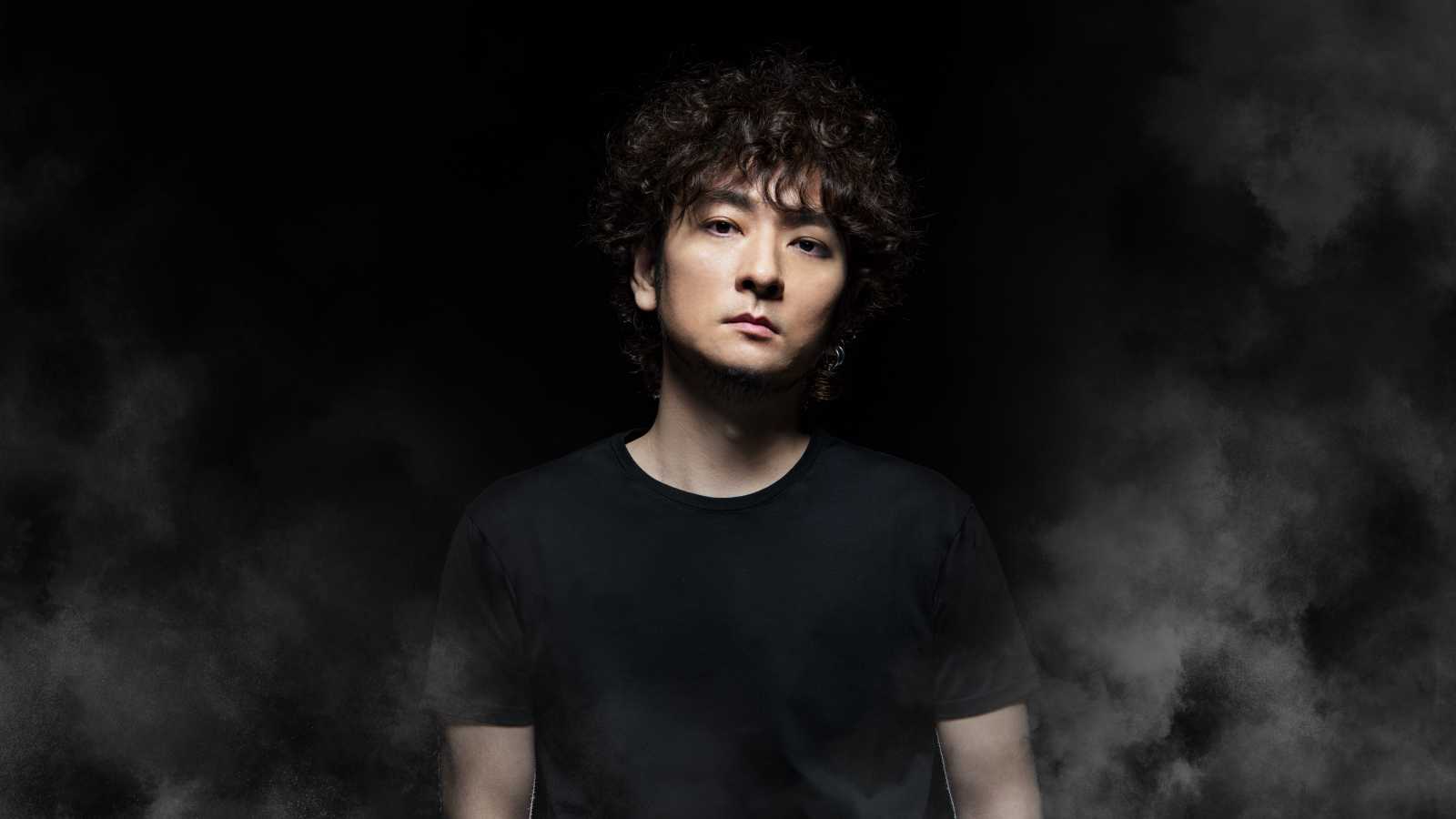In July 1993, following the dissolution of their previous band Ai Sick Face, aki andTomoi formed Laputa. The newly formed group made their debut performance on August 29th and 30th at an event held in Nagoya MUSIC FARM. On September 4th, they released their first demotape, Saddist no yume, which was limited to 80 copies.
On November 13th, Laputa’s live guitarist Hideno officially joined the group. A month later, they released their second demotape Naraku no soko. On December 29th, guitarist Hiro left the band.
The following year, Junji joined as their new guitarist. In May, Laputa released their debut maxi single Watashi ga kieru, with the first pressing limited to 1,000 copies. On July 25th, Hideno parted ways with the band to join Merry Go Round. After three days, former Silver-Rose member Kouichi joined.
The beginning of 1995 also signaled the departure of bassist Kubasa, who then went on to join Lucide. On January 12th, at a limited live event at Nagoya MUSIC FARM, it was announced that Junji would then take over the position of bassist within Laputa. The following month, the band released their debut album Memai, which was initially limited to 5,000 copies. In September, they moved their main activities from Nagoya to Tokyo and formed their official fanclub “VOYAGE."
On February 25th 1996, Laputa released their first mini-album, Kurumeku haijin, under Shakehand Records. It peaked at number two on the indie Oricon chart. A few months later, Laputa released their first live video entitled Hakoniwa, which peaked at number one on the Oricon indie chart. On August 10th during their limited fan club performance at the Shimokitazawa CLUB QUE, Laputa announced their major debut.
On September 30th, the group released their debut single, Garasu no shouzou, under Toshiba EMI.
In May of the following year, the band released their second single, eve ~Last night for you~, also under Toshiba EMI, which saw the title track being used as the opening theme for COUNTDOWN TV.
On June 8th, the band held a free live event at the east entrance of Shinjuku Station in Station Square. The announcement of this free event caused mass hysteria with around 3,000 fans flocking to the area to hear Laputa perform two songs. Due to the unprecedented success of the short performance, the event was documented on TV and in the newspapers the following day.
Their second album, E~emadara~mura, was released on June 25th and was followed a few weeks later with a fanclub only event at Meguro Rock-May-Kan. The band later released their third single, meet again, which was used as the opening theme for the Yomiuri TV anime “Kindaichi shounen no jikenbo."
The remainder of the year was filled with further touring and live events for the band, and it was only in February 1998 that Laputa released their fourth single Yurenagara… The title track from the single was used as the ending theme for the Nippon TV reality show “Susume! Denpa shounen” between February 15th and mid-March. In September, however, Laputa put out a series of releases, including their fifth single Feelin’ the sky, the reissue of several of their indie albums, and one VHS.
On January 1st 1999, the band released their sixth single, Breath, whose title track was used as the opening theme for the TBS series “Rank Oukoku” throughout the month of March. This was then followed by the release of Chimes in March, which was also featured in several commercial tie-ins.
Following the conclusion of another national tour throughout August and September, Laputa performed at an free outdoor event organised by Nagoya Television entitled “Vital ‘99” on September 25th. Laputa performed as the closing act for the event, in front of a crowd of around 5,000 people.
October saw Laputa venturing to Hong Kong to perform as the closing act at the “Rock'n Roll Circuit In Hong Kong” in front of around 4,000 people.
On February 23rd 2000, Laputa released Laputa Coupling Collection+xxxk. The following months involved extensive touring for the band and in May, they founded their own independent label, DUB CORPORATION, under the production company SHAKING HANDS INC. It was also around this time that Laputa moved from Toshiba Emi to the label Nippon Crown Records.
The following year, on February 21st, Laputa released their second maxi-single under their new label, entitled Silent on-looker, and just under a month later, their fifth album. Their final release of the year was the live video Heaven to Perfection TOUR 001 Programized Heaven final-mission.
In 2002, the group released their first mini-album glitter, which was shortly followed by Shinkai/Brand-new color in June and their sixth album, ~New Temptation~, in July. The following year was mostly filled with touring for Laputa, with only one mini-album release in April.
March 2004 signaled the release of the mini-album Material Pleasures and its supporting tour. In May, Laputa announced that following their performance at Shibuya Public Hall on September 5th, they would be disbanding.
In July the band released the best-of album BEST AL+CLIP, which featured material from across their career. Over the end of July and through August and September, Laputa held their last tour, which saw them performing across Japan.
On September 5th, following their final performance at Shibuya Public Hall, Laputa halted all activities with their final live DVD released being issued in December.
Despite their disbandment, Laputa has become one of the founding bands associated with the birth of the nagoya kei genre. Whilst Laputa’s members may have now branched off into their own solo projects and other such activities, it cannot be questioned that this group of men managed to create something new and fresh within the music scene during their career.
![HYDE [INSIDE] LIVE 2024 -EXTRA- at Makuhari Messe](https://www.jame-world.com/media/image/2024-11/_16-9_14951.jpg)


